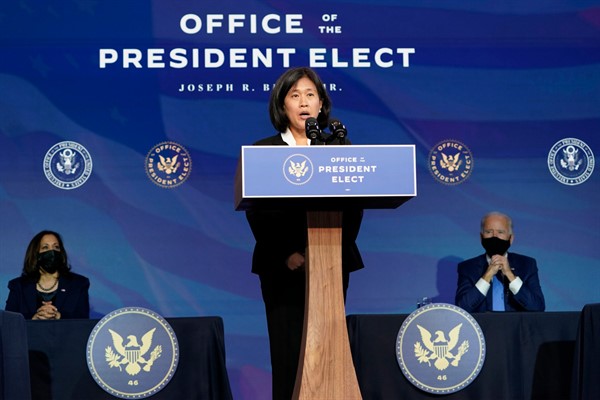“Trade is like any other tool in our domestic or foreign policy,” Katherine Tai, President-elect Joe Biden’s choice to be the next U.S. trade representative, said last Friday when her nomination was announced. “It is not an end in itself. It is a means to create more hope and opportunity for people.”
Those remarks from the 46-year-old career trade official may seem self-evident. But they hint at what could become a significant change in the direction of trade policy under the new president. Since the era of bilateral and regional trade negotiations began in the mid-1980s, the mission of the Office of the United States Trade Representative has been to enter into ever more trade agreements, confident that the benefits of lower tariffs, clearer rules and expanded trade would trickle down to the American people. That mission was shared by trade representatives under Republican presidents, such as Carla Hills and Robert Zoellick, and Democratic ones, such as Charlene Barshefsky and Michael Froman. Whether such trickling down actually created new jobs and new opportunities for Americans was largely someone else’s problem.
Under Biden’s “foreign policy for the middle class,” the question of how to link trade policy with domestic economic renewal is taking center stage. Biden’s national security adviser, Jake Sullivan, was part of a team of researchers at the Carnegie Endowment that produced several reports arguing that U.S. foreign policy should be reoriented to address middle-class economic concerns. He also took the lead in drafting Biden’s “Build Back Better” platform, which focuses on investments in American workers and communities. Susan Rice, who served as President Barack Obama’s national security adviser, has been named as head of the White House Domestic Policy Council, further suggesting that the lines between foreign and domestic policy will become especially fuzzy under Biden.

